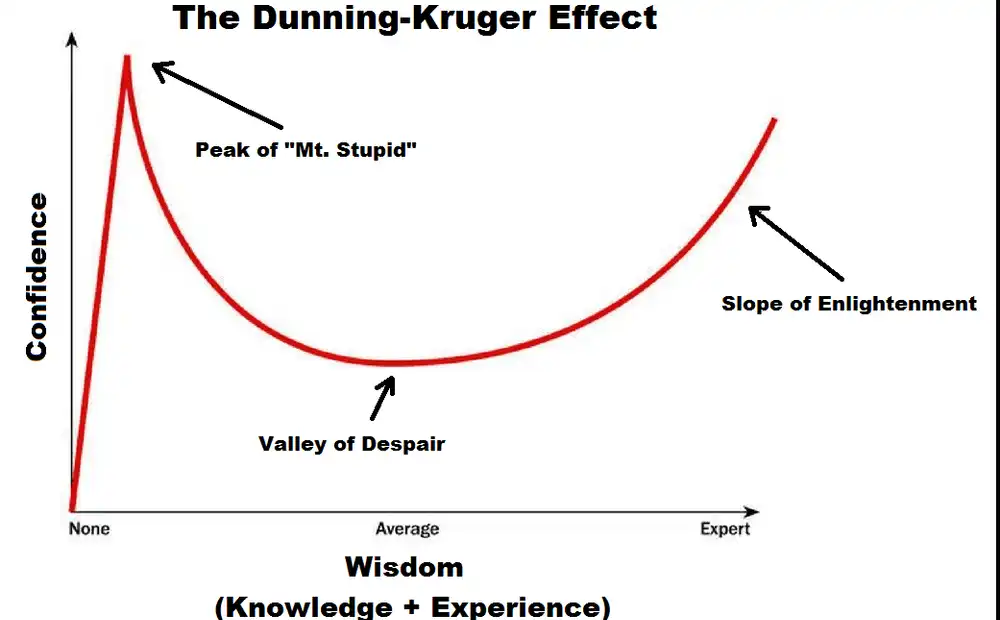How does the Dunning-Kruger effect impact hiring?

Have you heard about the Dunning-Kruger effect?
It's basically that when someone has a lack of knowledge/skill, they tend to overestimate their skill.
It’s like a type of beginners’ ignorance, and overconfidence bias, specifically because of our ignorance. It’s like we don’t know what we don’t know.
It's really easy to think that something is easy, until you've actually had to do it.
The thought of ‘Oh I reckon I could easily run a marathon’ becomes quickly dashed when you’re nearly collapsing after 1 mile.
The Dunning-Kruger effect is especially rife in hiring, and it plays a big part in the inaccuracy of traditional screening approaches.
Using a CV to screen candidates means that you're shortlisting people based on their perceived skills, not their actual skills.
It's very easy to feel like you know it all after a 8 hour data science bootcamp on Udemy, but it's clearly not the case.
It’s easy to imagine that the Dunning-Kruger effect will become much worse soon with ChatGPT, which will give people a lot more false sense of competence - just type in anything and you'll get some convincing sounding answer, even if it ends up being complete nonsense.
Additionally, there will be plenty of ‘CV’ optimisation products that will spin up on the back of it, spamming talent teams with more CVs to read that look amazing, but have no real substance behind them.
Minimising the impact of the Dunning-Kruger effect in hiring basically comes down to validating what a candidate is saying.
Put another way - talk is cheap. Make sure they can walk the walk.
This is where skills-based hiring, and actually validating what your candidates’ know, becomes super important.



